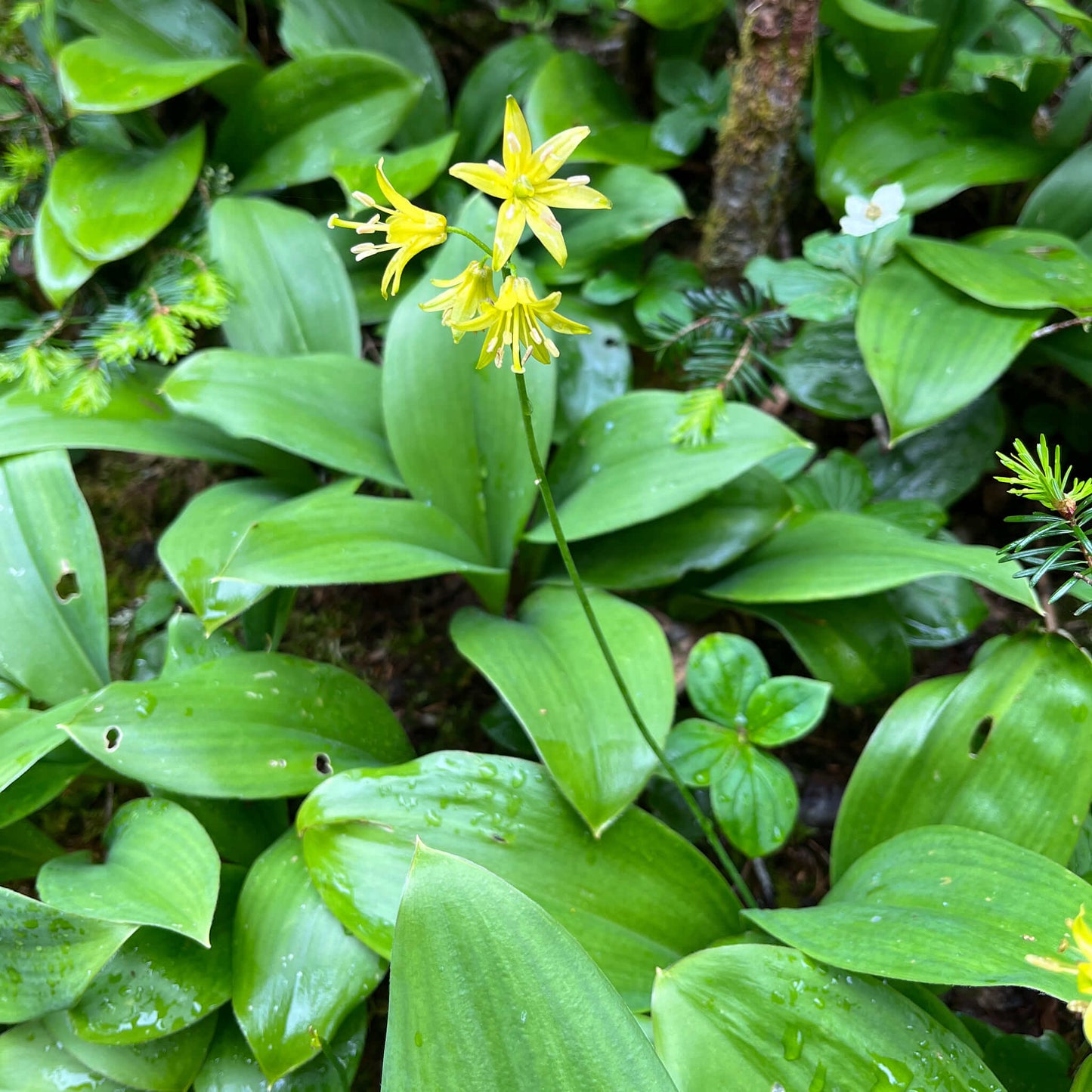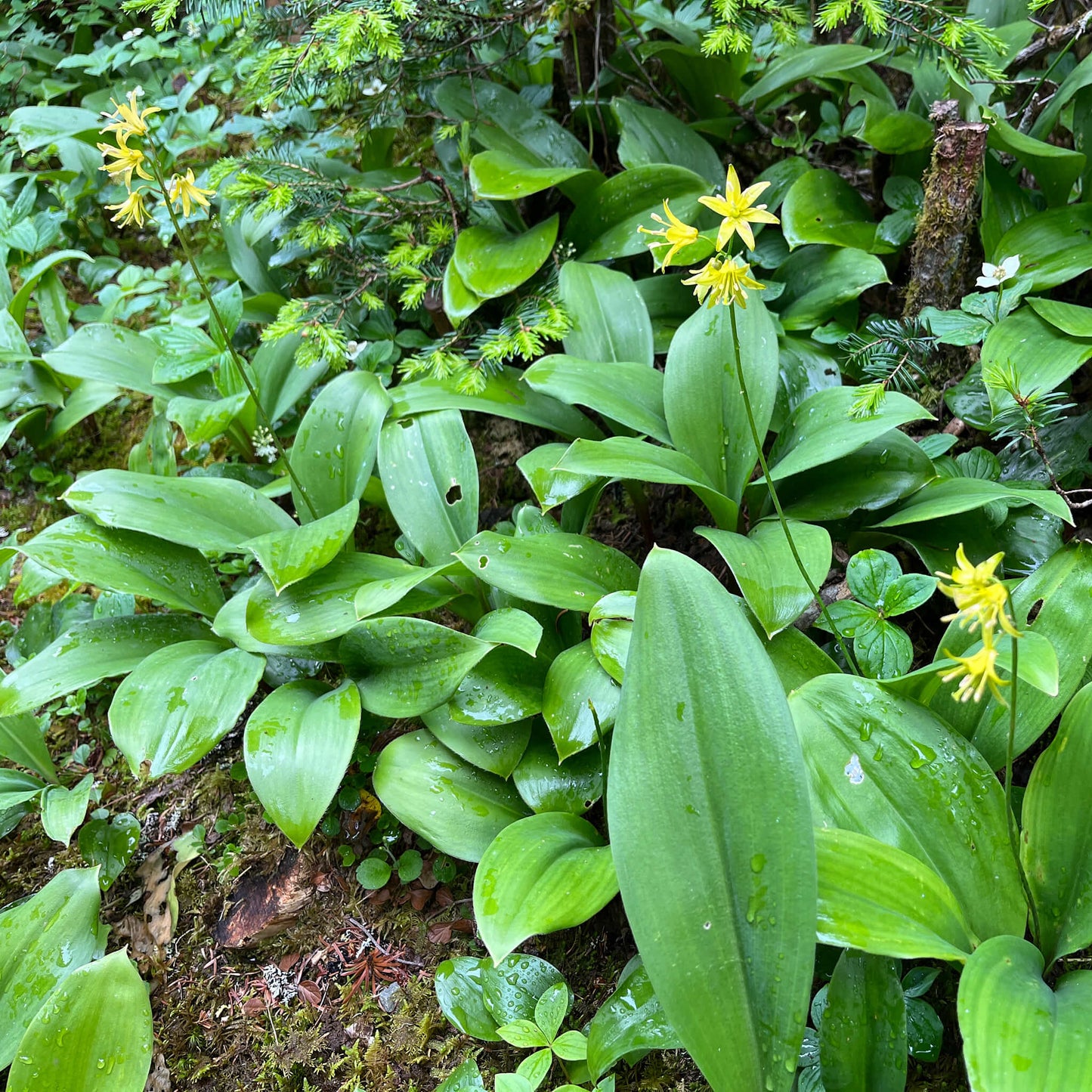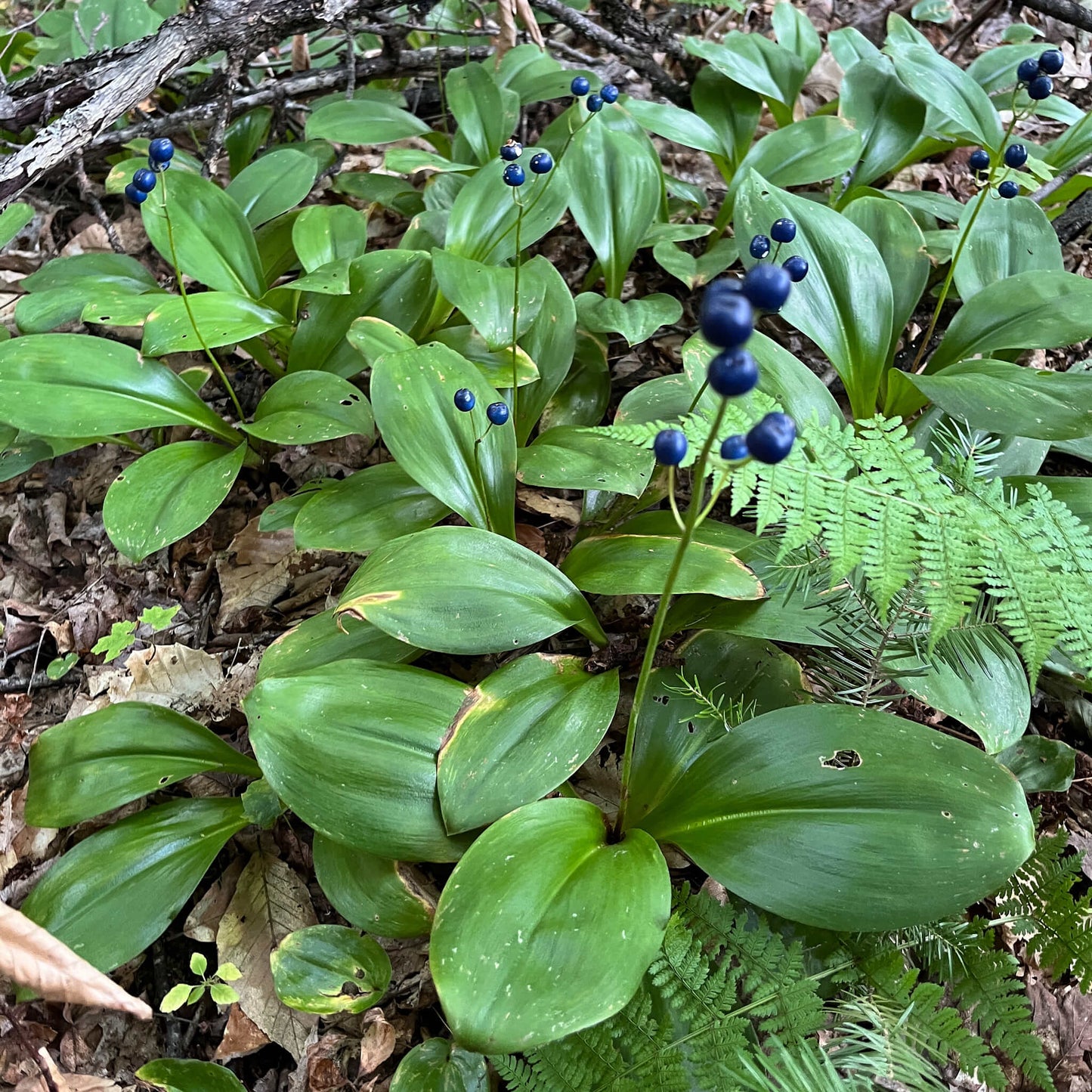This site is protected by hCaptcha and the hCaptcha Privacy Policy and Terms of Service apply.
For successful seedlings,
see the growing notes at the bottom of the page!
Bluebead lily (Clintonia borealis), also known as bluebead lily, is a herbaceous perennial native to North America's temperate forests, where it thrives in cool, shaded woodlands. This plant, which grows between 15 and 25 cm tall, is easily recognizable by its large, glossy, lance-shaped leaves arranged in a rosette at the base. In the spring, bluebead lily produces a flowering stalk topped with small, bell-shaped, yellow-green flowers. By summer, these flowers give way to bright blue berries, which are inedible for humans but are eaten by some animals. Bluebead lily is an excellent choice for forest gardens and shaded landscapes.
Ecological Roles
Bluebead lily plays an important ecological role in the forests of northeastern North America. In addition to providing ground cover, this plant helps prevent soil erosion in moist forests. Its blue berries, though toxic to humans, are consumed by birds and small mammals, aiding in seed dispersal and supporting local biodiversity. The plant is also beneficial to pollinating insects, which feed on the nectar of its springtime flowers.
Bluebead lily seeds require cold stratification to ensure germination. See the cultivation notes below for more details.
Akène cannot assume any responsibility for the use of plants for therapeutic purposes. Always seek advice from a professional before using a medicinal or edible plant.
Sowing and Growing
Technical Details
Seeds per packet: 20
Family: Liliaceae
Scientific name: Clintonia borealis
Life cycle: Perennial
Hardiness zone: 3
Soil type: Sandy to loamy
Soil moisture level: Medium
Soil - additional attributes: Tolerates acidic soils
Light: Part shade, shade
Blooming: May to June
Spacing: 25 cm
Height: 15 to 25 cm
Deer resistance: Low
Stratification: 2 x 60 days
Scarification:
Germination time:
Sowing depth: 20 mm



